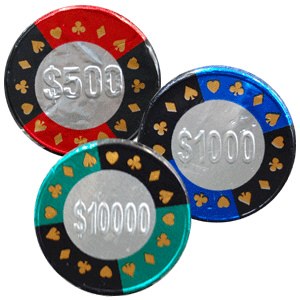Serbia Gambling Law
Before opening an online project, every operator primarily asks the question: what market to choose? Where can I operate freely, and where do I need to go through the licensing procedure?
Slotegrator examined this question. Our experts prepared a list of countries where online gambling operation is legal.
This is the largest group of countries. Many of them do not regulate gambling activities at all. Online gambling laws around the world. Today almost every country has its own rules regulating the land-based gambling. However, the situation with online gambling is more ambiguous. Serbia Gambling Law fast-paced casino card game is easy to learn and fun to play online. Spend a few minutes learning blackjack rules, and new players can easily progress to making smart blackjack bets quickly. Practice using one of our 50 free blackjack games now before playing blackjack for real money.
To make it even more convenient, we sorted them by continents. It includes not only those countries subject to certain requirements and where online gambling is regulated by law. There are also those countries where online gambling is neither regulated nor prohibited.
Online gambling availability in the World 2020
Depending on different approaches to gambling regulation in the world, all countries are divided into 4 groups.
Countries where foreign online casinos are not blocked:
| Africa | Asia | Europe | North America | South America | Oceania |
| Eritrea Nigeria | Azerbaijan Brunei Hong Kong Japan Kyrgyz Republic Laos Malaysia Qatar Singapore Uzbekistan Yemen | Cyprus Bosnia and Herzegovina Czech Republic Iceland Luxembourg Serbia Slovakia | Cayman Islands Salvador Mexico | Brazil | American Samoa Australia Guam New Zealand |
The local regulators do not apply any legislative requirements in these countries. Foreign gambling sites can be licensed in any jurisdiction or generally operate without it.
However, it should be noted that gambling is not necessarily legal in these countries.
For example, the Cayman Islands completely prohibit gambling, while the local residents are liable for participation in gambling. The fact that foreign online casinos are not blocked now can only be explained by the inability of regulator to do this. And if the online gambling is not legalized, blocking of foreign sites is just a matter of time.
Countries where gambling websites must be licensed by the local regulator:
| Africa | Asia | Europe | North America | South America | Oceania |
| Ethiopia Mayotte Reunion Island | Georgia Sri Lanka | Austria Belgium Bulgaria Croatia Denmark Estonia Finland France Germany Italy Netherlands Poland Romania Spain UK | Antigua and Barbuda Guadeloupe Martinique Panama Saint-Barthélemy Saint-Martin Virgin Islands (USA) | Falkland Islands French Guiana | French Polynesia New Caledonia Wallis and Futuna Islands |
These countries use the most competent approach to online gambling regulation. Each operator (whether it is local or foreign) must acquire a license and fulfill certain legal requirements. Conditions are equal for all. Everyone is obliged to pay taxes to the budget. Only in this case, the operator has the right to work legally. Otherwise, the online resource will be blocked.
Serbia Gambling Law Changes
The following countries require a license of the local regulator only for the local gaming sites. Foreign platforms can work without it:
| Africa | Asia | Europe | North America | South America | Oceania |
| Comoros Gambia Guinea Mauritius Rwanda Seychelles | Armenia | Greece Hungary Ireland Latvia Lithuania Macedonia Moldova Monaco Norway Montenegro Portugal San Marino Slovenia Sweden Switzerland | Aruba Belize Canada Curacao Dominica Dominican Republic Greenland | - | Fiji Vanuatu |
As in the first group, these countries do not apply any legal requirements to foreign sites. A foreign operator may be licensed in any jurisdiction and, in some countries operate without it at all. However, all local casino owners are required to undergo the licensing procedure of the local regulator and to pay taxes to the local treasury.
The following countries have no restrictions for the gambling sites at all:
| Africa | Asia | Europe | North America | South America | Oceania |
| Angola Benin Botswana Burkina Faso Burundi Cameroon Cape Verde Central African Republic Chad Congo DR Congo Egypt Equatorial Guinea Gabon Ghana Guinea-Bissau Côte d'Ivoire Kenya Lesotho Liberia Madagascar Malawi Mali Morocco Mozambique Namibia Niger Sao Tome and Principe Senegal Sierra Leone South Sudan Swaziland Tanzania Togo Tunisia Uganda Western Sahara Zambia Zimbabwe | Bangladesh Macau India Mongolia Myanmar Tajikistan | Albania Andorra Belarus Faroe Islands Gibraltar Isle of Man Kosovo Liechtenstein Malta | Bahamas Barbados Bermuda Costa Rica Djibouti Grenada Guatemala Haiti Honduras Jamaica Nicaragua Saint Kitts and Nevis Saint Lucia Saint Vincent and the Grenadines Turks and Caicos | Argentina Bolivia Chile Ecuador Guyana Paraguay Peru Suriname Trinidad and Tobago Uruguay Venezuela | Cook Islands Kiribati Micronesia Nauru Northern Mariana Islands Palau Papua New Guinea Samoa Solomon Islands East Timor Tonga |
This is the largest group of countries. Many of them do not regulate gambling activities at all.
Online gambling laws around the world
Today almost every country has its own rules regulating the land-based gambling. However, the situation with online gambling is more ambiguous. As can be seen, the attitude towards local and foreign operators differs fundamentally from country to country.
In the European Union, for example, the operators of the foreign gambling sites are subject to the requirements of the EU law. However, not all countries agree that foreign operators don’t pay taxes to the local treasury. Contrary to the requirements of the EU, they put the foreign operators under own regulations forcing them to obtain a local gaming license and pay taxes to the local budget. Among these countries France, Germany, Italy, etc.
The second reason for the different attitudes to local and foreign operators is that many countries (especially those not technologically advanced) simply do not have the resources or tools to prevent foreign companies from operating in their territories.
Summing up the availability of online gambling around the world:
- 32 countries prohibit the local operators from working without a license, but those gambling sites that operate from abroad can easily offer their services to local residents. Among them, the following countries: Seychelles, Armenia, Dominican Republic, Greece, Monaco, Norway, Canada, Sweden, Switzerland, etc.
- 32 countries allow online gambling only with the local license. For example, Austria, Denmark, Finland, France, the UK, the Netherlands etc.
- 28 countries prohibit locals from gambling and block sites of local gambling operators. However, foreign platforms can work freely, even if they have no license. These states are either unwilling or are not able to prevent them. For example, Australia, Brazil, New Zealand, Mexico, Japan, Singapore, Nigeria, etc.
- 93 countries do not prohibit online casinos and do not license them. They include Bolivia, Uruguay, Venezuela, Bahamas, Argentina, Egypt, Kenya, Tunisia, Kosovo, Gibraltar, etc.
Thugs, drug dealers and even an accused war criminal dominated Serbia’s gambling industry a decade ago, their gun battles and bombings spilling across Europe. Many wound up dead, a few behind bars and most have been out of the business for a long time.
Today, there are signs of improvement. New laws are taking hold and several apparently legitimate businessmen and companies have assumed a greater piece of the gaming industry.
But an Organized Crime and Corruption Reporting Project (OCCRP) investigation leaves no doubt that among the new figures in the industry is a new stable of criminals. Court records and company registers indicate that money laundering and drug dealing are not obstacles to getting a gambling license.
The roster of casino and bet shop owners around the country is dotted with men with prison records and notorious affiliations.
Milan Narančić, for instance, was named in the 2002 Serbian state police White Book as a leader of the feared Surčin clan's heroin and cocaine trafficking operations. Today, Narančić controls company that makes slot machines, another that inspects them for accuracy and several slot machine parlors.
Serbia Gambling Law Philippines
Another former member of the Sučin clan, Novak Buha, is on trial for extortion and other crimes, but still operates nine bet shops and gaming houses around the country.
And eight years ago, Slobodan Arambašić killed a director of the Zona Sreće - Zone of Luck - gambling parlor during a chaotic street battle involving guns and a grenade. Today, Arambašić, whose prison record includes drug and weapons convictions, is licensed as a half owner of the same parlor. Serbia is not rid of its rogue’s gallery of gambling hall operators.
Overall, 87 firms control 2,192 parlors, with nearly 20,000 machines in use, according to government records. Serbia collected €11.5 million in tax revenues from gaming facilities in the first three months of this year, up sharply from just fiveyears ago, when it collected €8 million for the entire year.
 More money is on the horizon.
More money is on the horizon.The Grand Casino in Belgrade is the only full casino operating in the country, but the Hit conglomerate of Slovenia has a license for another, and eight more licenses will be awarded, a ministry of finance spokesman said recently.
Hit, which operates Sarajevo's only full casino and has not been linked to any scandals, has not released any plans on when it might build.
Serbian officials said they hope an influx of new companies, combined with tighter rules on who gets licenses, will help fix many of the industry's problems. But that may take time.
A lot of baggage
After the dismantling of Yugoslavia, the end of the Slobodan Milošević regime and because of a cast of characters who wound up in morgues, jails, and The Hague, Serbia’s gambling industry still faces obstacles to coming clean.
In 2001, an overhaul proposed by the Ministry of Finance would have given the state a monopoly on casinos and betting parlors and tightened control over the cash they generated. The proposal noted that vast amounts of profits were not recorded – a problem that officials said persists today.
“The gray economy in the last decade has grown to extraordinary proportions, and the collection of public revenue, is practically symbolic,’’ said a statement accompanying a draft of the law when it was considered at the time.
Gambling industry owners howled in protest. Aleksandar Ganić, who owned the Jaguar chain of betting shops, organized an association of owners, lobbied the media and politicians and predicted the proposal would go nowhere.
Two years later, Ganić was arrested after police raided a warehouse he rented and found weapons, ammunition and 11.5 kilograms of plastic explosives. The Jaguar shops closed, and he disappeared from public view.
Then, in 2004, lawmakers passed a law to clean up the industry with little opposition, but it has fallen short of its goal.
The law essentially gave the state control over lotteries, while loosening regulation of other games of chance, such as casinos, sports betting and electronic games.
Tax revenues multiplied by more than 600 percent. But the law also put the state in control of licenses and that led to the closing of all the country’s casinos until they won state approval.
The first do to so was Grand Casino, which paid €18 million for a license and opened in Belgrade on June, 2007, with 25 tables and 230 slot machines.
The Grand Casino license was awarded in 2006 to a group of companies whose board of directors included Fredy Robinson, a Romanian-Israeli businessman. Robinson and companies he was involved with also own casinos in Romania, where he has paid more than €1 million to settle repeated violations of the country's money laundering and tax reporting laws, according to government records there.
Robinson was listed as one of two 'ultimate controlling shareholders,' according 2007 stock filing by Queenco Leisure International. Queenco owns a 38.5 percent stake in the company that now operates Grand Casino.
Last year, Robinson was arrested in Israel on fraud charges involving some of his other companies. He resigned from the board of Queenco on May 26 in a public dispute with the company and nowl owns 6.8 percent of Queenco's stock, according to company financial records filed with the London Stock Exchange.
Changes Under the New Law
The 2004 law that led to Grand Casino winning a license sharply changed Serbia's gambling industry. With casinos more tightly regulated, a flood of people jumped into the gambling and slot machine business. Some had unsavory ties to organized crime.
Narančić, born in Croatia in 1950, is one. The registered owner of LD Games Ltd., which manufactures electronic gambling machines and sells them throughout the Balkans, he is thought by authorities to control the BN Company of Belgrade, which operates 13 slot machine clubs.
 Before entering the gambling business, Narančić was supposedly a leading member of the Surčin clan, the Serbian police said in a special investigative report in 2002. The group violently controlled heroin and cocaine trafficking operations in the region, the report said, and was active in money laundering and other crimes.
Before entering the gambling business, Narančić was supposedly a leading member of the Surčin clan, the Serbian police said in a special investigative report in 2002. The group violently controlled heroin and cocaine trafficking operations in the region, the report said, and was active in money laundering and other crimes.Narančić's most recent arrest was in 2003 as part of a police sweep aimed at alleged organized crime figures. But he was released four days later, has not had any legal troubles since and now operates businesses around the country.
The BN Company is registered in the name of his wife, Branka, although Narančić openly operates it and other slot-related companies. In 2007, one of the couple’s casinos was burned in an arson fire, and last year a bomb was thrown at their house.
Perhaps no Serbian gambling house has as colorful a story as the Zone of Luck. Established in 1995, the company now operates betting and slot machines in 23 locations around Serbia. The company has a bloody history; two past owners were murdered.
 In 2001, the director of the gambling house, Dusan Trkulja had a heated argument with Arambašić. Guns and even a grenade were used, and by the time they were done, Trkulja was full of bullets and Arambašić was jailed on murder charges.
In 2001, the director of the gambling house, Dusan Trkulja had a heated argument with Arambašić. Guns and even a grenade were used, and by the time they were done, Trkulja was full of bullets and Arambašić was jailed on murder charges.Trkulja had served 19 years in prison on seven convictions, including theft and armed robbery. Arambašić, with only five convictions and a shorter prison resume, was released after the prosecutor decided not to file charges.
In 2007, Darko Živković, another former owner, who police say ran a stolen car ring, and two friends were shot to death.
Eight years after his public shootout, Arambašić has 50 percent ownership in the gambling hall.
A Pedigree of Violence
Serbia's current problems carry on a long tradition.
According to friends, an up and coming criminal had started extorting him. That criminal was Željko Ražnatović, who was later indicted for war crimes, and known around the world as Arkan.
After Jablan fled, the casino business boomed, and those with the best connections to Arkan and the former communist power structure flourished.
Arkan’s associate and a commander in his paramilitary Arkan's Tigers was Slavko Mijović, also known as Mija Pijuk. He became part-owner of Fair Play Casino in the hotel Kasina at the center of Belgrade, and the founder and owner of the nightclub-gambling house Paladium.
On Oct. 19, 2001, Mijović was killed by an attacker with an automatic weapon who fired more than 20 shots into his Jeep in front of a Belgrade Café.
And Arkan, who began the casino mayhem when he chased Jablan out of the country, opened a casino at the Hotel Yugoslavia. On Jan. 15, 2000, Arkan was shot to death inside the lobby of the Hotel Intercontinental, in front of his wife, the famed singer Ceca, and their two children.
As for Jablan, he didn’t run far enough. In the summer of 1998, he was murdered in the garage of elite hotel Hilton in Prague, Czech Republic.
Stevan Dojčinović
CORRECTION: A story on casino gambling in Serbia that was produced by members of the Organized Crime and Corruption Reporting Project incorrectly stated that Romanian-Israeli businessman Fredy Robinson controls the Grand Casino in Belgrade.

Serbia Gambling Law 2020
The Grand Casino, the only operation licensed in Serbia to operate as a full casino, is majority owned by Club Hotel Loutraki S.A. in Greece. Club Hotel Loutraki is, in turn, owned by a series of companies that lead back to Queenco Leisure International Ltd., which was founded in Israel in 2002.
Queenco on its website identifies Loutraki and Casino Belgrade as two of the casinos owned and managed by the company and its subsidiaries. In 2007, Robinson was identified as one of two “ultimate controlling shareholders” of Queenco, in a company stock offering, and he was on the board of directors when he resigned May 26, 2009. His direct stock interest in the company, now, though, is 6.8 percent, according to Grand Casino’s managing director, Christos Tsemperas and to filings with the London Stock Exchange.